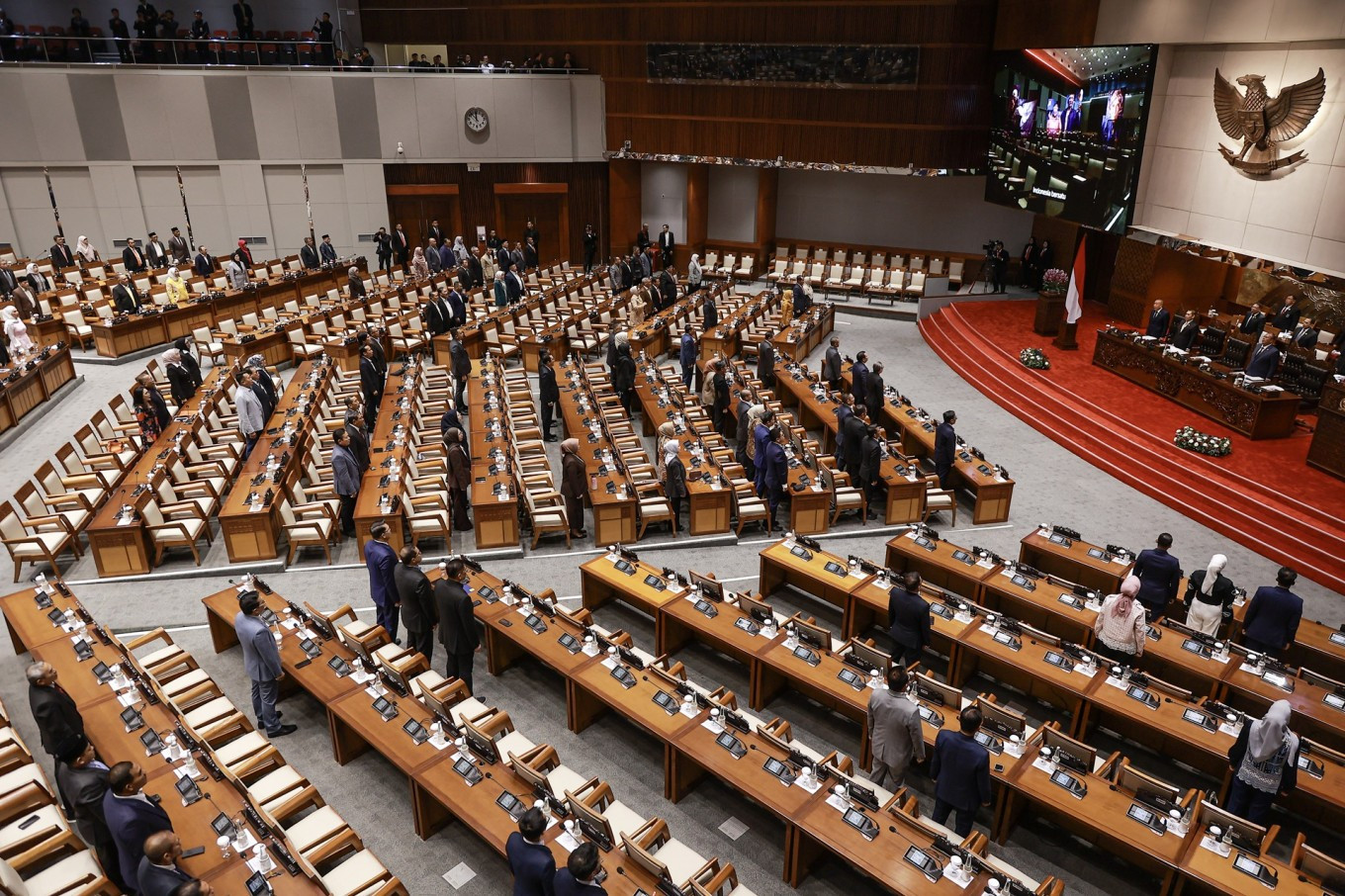News
The contrasting sides of the House of Representatives
Tenggara Strategics September 23, 2025 Lawmakers attend a House of Representatives plenary session on July 1 at the Senayan legislative complex in Jakarta. (Anatara/Dhemas Reviyanto)
Lawmakers attend a House of Representatives plenary session on July 1 at the Senayan legislative complex in Jakarta. (Anatara/Dhemas Reviyanto)
Amid intensifying public protests against lawmakers for their behavior and statements that hurt their voters, the House of Representatives has faced a crisis of confidence. Gerindra Party politician Rahayu Saraswati's resignation stands in sharp contrast to other legislators who have left their political futures in the hands of their parties.
Rahayu, a former entrepreneur, stepped down after her February 2025 statement, in which she encouraged the younger generation not to rely on the government for jobs, was reposted amid recent protests. Many considered her comment offensive.
The divergent responses highlight the varied approaches of representatives in fulfilling their roles. The current public backlash stems from a proposed significant increase in housing benefits for lawmakers, at a time when the country grapples with economic sluggishness and limited job opportunities.
The public's anger was further fueled by the inappropriate behavior of several lawmakers, showcased through social media and public events. Videos of legislators dancing during the People’s Consultative Assembly’s annual plenary session, combined with displays of extravagant lifestyles from figures like Eko Patrio and Uya Kuya of the National Mandate Party (PAN), exacerbated public frustration.
Other lawmakers courted controversy with provocative remarks: the NasDem Party's Ahmad Sahroni insulted citizens who called for the House's dissolution, while fellow NasDem politician Nafa Urbach insisted lawmakers were entitled to the incentives.
Meanwhile, Adis Kadir, the deputy House speaker from the Golkar Party, worsened the situation by poorly explaining the incentive components, further damaging the House's credibility.
Many of these controversial lawmakers—Eko and Uya, both former celebrities, and Nafa, an ex-actress, have a background in entertainment. Eko, now in his third term, was recently appointed PAN's secretary general, while Uya and Nafa are in their first terms. Sahroni, known for his wealth and flamboyant lifestyle, serves as the NasDem Party's treasurer.
In an apparent show of public anger, hundreds of people ransacked their private homes during the recent uprising. They and their families survived as they had already relocated before the looters arrived.
In response to the massive protests, the House leaders canceled the controversial increase of housing allowances and suspended all overseas trips for lawmakers.
Rather than stepping down voluntarily, however, the five lawmakers allowed their parties to decide their fate, eventually leading to their suspension. In a stark contrast, Rahayu, who is also President Prabowo Subianto's niece, admitted her remarks on a podcast had disappointed the public and resigned on her own initiative. She denied speculation that her resignation was a strategic move to assume a ministerial post.
While many of the 580 lawmakers are perceived as living lavishly, reflecting the high costs of securing a legislative seat, it is notable that the most controversial figures are not the wealthiest. The top five richest lawmakers have mostly avoided controversy by carefully managing their public image and limiting the exposure of their personal wealth.
Still, Rahayu’s resignation shows that some lawmakers are mindful of their constituents’ struggles and are willing to act responsibly. Others, like PAN lawmaker Primus Yustisio, continue to live modestly despite his wealth. With declared assets of Rp 129 billion (US$7.8 million), he is known for using public transportation and avoiding social media displays of his lifestyle. He, too, came from the acting industry before entering politics.
The widening gap between lawmakers' behavior and public expectations is reflected in a public trust score of only 69 percent for the House as of January 2025, making it the second least-trusted institution in the country, just above political parties. Moreover, dozens of lawmakers have been convicted of corruption, including former House speaker Setya Novanto and former deputy speakers Taufik Kurniawan and Azis Syamsuddin.
While some legislators fuel outrage, others remain committed to their mandate, striving to uphold their responsibilities as representatives of the people.
What we've heard
A senior figure in Prabowo’s coalition said that the problematic politicians were initially expected to resign from the House. However, party leaders did not allow them to step down. “The middle ground was to suspend them first,” a source said.

